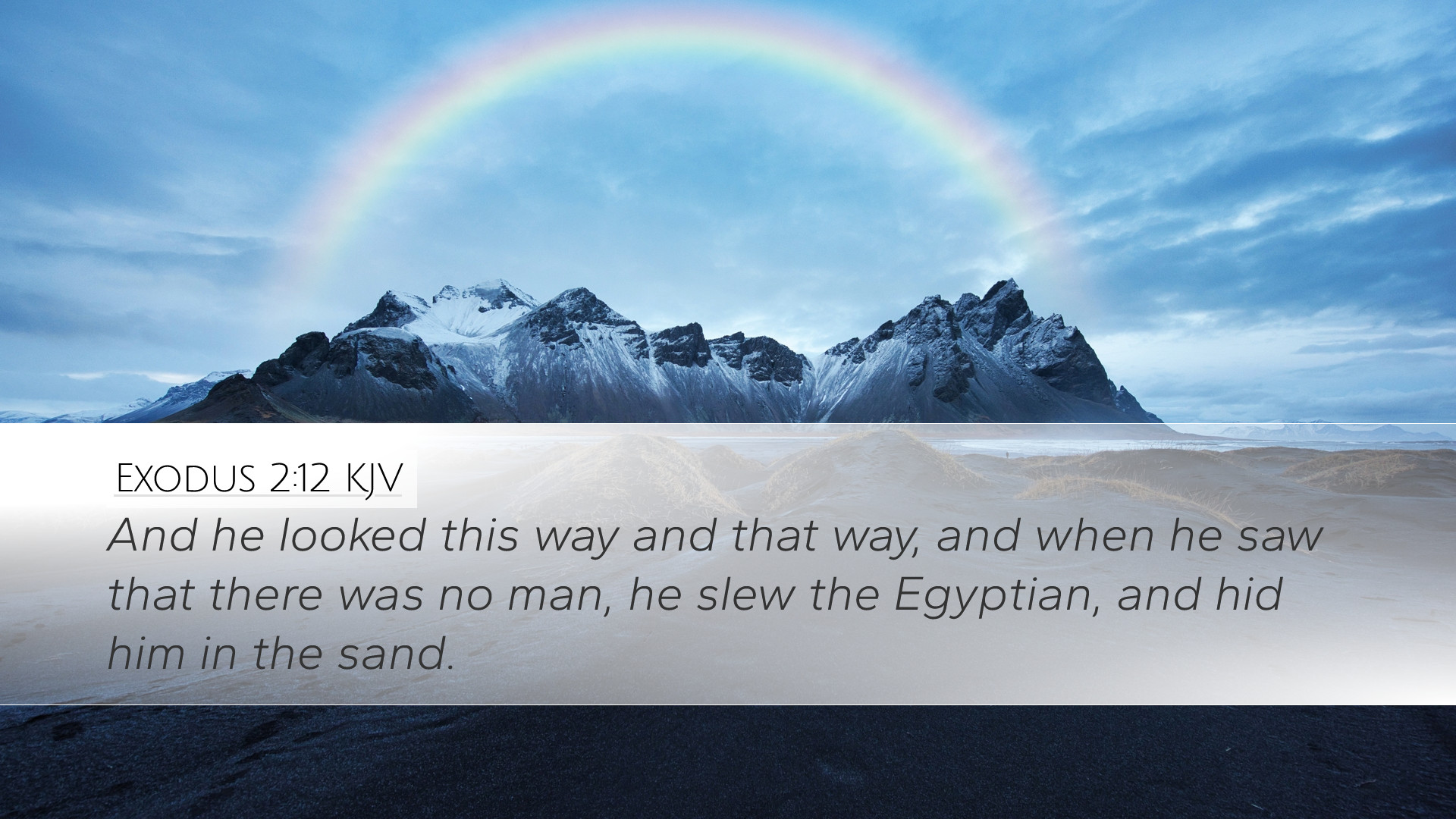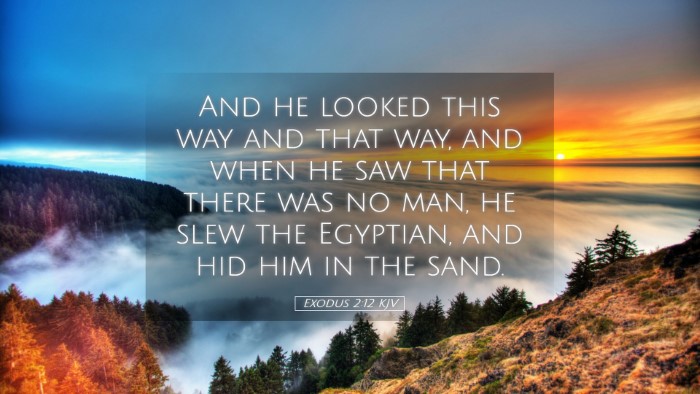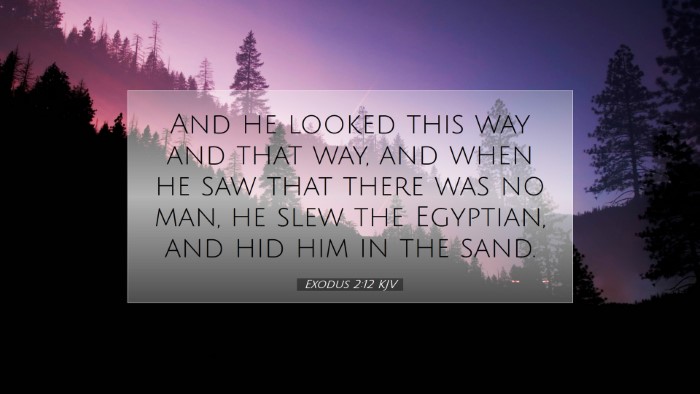Commentary on Exodus 2:12
Verse: "And he looked this way and that way, and when he saw that there was no man, he slew the Egyptian, and hid him in the sand."
Introduction
This verse marks a pivotal moment in the life of Moses and acts as a precursor to his future role as a deliverer of Israel. It encapsulates themes of justice, identity, and the struggle of God's chosen people. Various public domain commentaries provide rich insights into the implications of Moses' actions and the broader theological ramifications.
Moses' Actions: A Study of Justice
Albert Barnes comments on the morality and justification behind Moses' actions. He argues that Moses, being raised in Pharaoh's palace, recognized the oppression of his people. His act of killing the Egyptian was driven by a sense of injustice, which resonates with the biblical theme of God's concern for the oppressed. In a similar manner, Matthew Henry encourages readers to understand Moses not merely as a murderer, but as a figure compelled by a deep-rooted sense of justice and compassion for his fellow Hebrews.
The Flawed Nature of Human Justice
Adam Clarke notes that while Moses acted from a place of indignation, his method was ultimately flawed. Killing the Egyptian did not bring liberation to the Israelites; rather, it pushed Moses into exile. This reflects the human tendency to resort to violence and impulsivity when faced with injustice. Clarke implies that such actions may have short-term satisfaction but long-term consequences that can derail divine plans.
The Significance of Moses' Dual Identity
Understanding Moses' dual upbringing provides critical context. He is both an Egyptian prince and a Hebrew slave. Each identity pulls him in opposing directions, leading to inner conflict:
- Identity as an Egyptian: Raised in luxury, educated in the ways of Pharaoh, his initial approach to justice might reflect the methods of his upbringing.
- Identity as a Hebrew: His compassion for his kin prompts him to take drastic action, revealing a deep connection to their suffering.
Henry elaborates on this tension by indicating that Moses’ awareness of his roots is crucial for understanding his mission. It is this duality that God ultimately uses to bring about the Exodus.
The Look to the Left and Right: A Moment of Hesitation
The phrase "he looked this way and that way" suggests a moment of hesitation and forethought. Barnes interprets this as Moses' awareness of the gravity of his actions. Moses seeks validation for his actions by ensuring no witnesses are present.
This moment serves as a critical reflection on moral accountability. Matthew Henry emphasizes that while Moses' intentions were noble, his lack of foresight reveals a flaw in judgment. This aspect of the narrative invites the audience to consider the moral complexities involved in the decision-making processes of leaders.
Concealment of the Crime
Moses hiding the Egyptian's body in the sand underscores a theme of secrecy and accountability. Clarke notes that this act represents an attempt to conceal wrongdoing, a recurring theme in humanity's attempt to evade divine justice. The choice to hide speaks to a deeper spiritual truth regarding the inevitability of exposure and consequence for sin.
The Consequences of Actions
While Moses may believe he has successfully masked his actions, the implications are far-reaching. Barnes points out that this event sets in motion a sequence that leads to Moses fleeing Egypt, further alienating him from his calling, which will later be restored by God at the burning bush. The narrative establishes an important principle: even actions taken with good intentions can lead to negative outcomes if not aligned with divine will.
Theological Implications
The commentary on Exodus 2:12 reflects broader theological principles concerning humanity and divine sovereignty:
- God's Plan: Despite Moses’ premature act, God orchestrates events to fulfill His plan of deliverance.
- Divine Preparation: Moses’ flight prepares him for future leadership as he undergoes spiritual and personal growth in Midian.
- Grace and Redemption: The narrative foreshadows God's redemptive work despite human failures, emphasizing the grace that will ultimately be extended through the lawgiver and mediator, Moses.
Conclusion
Exodus 2:12 serves as a critical juncture in the narrative of Moses’ life. It speaks to the tension between justice and moral imperfection, the complexity of identity, and the necessity of divine intervention in human affairs. As pastors, students, theologians, and scholars reflect upon this verse, the insights drawn from the public domain commentaries illustrate profound truths about the human condition and God's overarching sovereignty. Through Moses' story, the reader is challenged to contemplate the means by which God prepares His servants and the grace required when they inevitably falter in their journey.


